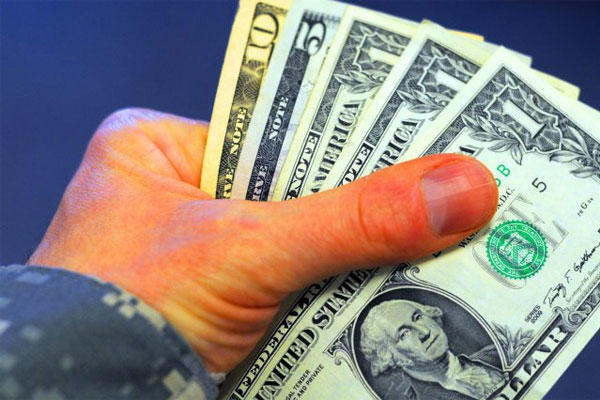The VA home loan is most famous for requiring no down payment from those who qualify for the program. Conventional loans underwritten to Fannie Mae or Freddie Mac guidelines require the loan amount to be at least 80 percent of the sales price of the home to avoid private mortgage insurance and higher interest rates. That means a $300,000 home loan using a conventional loan will ask for a 20 percent down payment of $60,000.
Yet even though the down payment requirements for VA loans is zero, there are additional funds required to close on the transaction including appraisal charges, homeowners insurance and a host of other closing costs.
How can you save money when buying a home using your VA home loan entitlement?
Allowable Fees
Closing costs associated with a VA home loan are limited yet they exist nonetheless. For example, common lender fees such as loan processing fees or underwriting charges cannot be levied against the veteran. Charges from an attorney or a closing agent are not allowed to be paid for by the veteran.
Other fees that the veteran may pay can be remembered with the acronym, ACTORS, which stands for
- Appraisal
- Credit report
- Title insurance and title-related fees
- Origination fees
- Survey
These charges alone can vary but can be as much as $5,000 or more on a $200,000 purchase. Yet these fees are considered non-negotiable, which means the companies that provide these services will in most cases ignore any request to reduce or eliminate their fees.
In addition to these charges, you’ll also need to purchase home owners insurance and establish a tax and insurance escrow account to accompany your VA home loan. This might add another $3,000 in closing costs. How can you reduce or eliminate such charges?
Have the Seller Pay
The first opportunity to reduce your closing costs is to have the seller pay your closing costs for you. In fact, most initial offers to purchase a property can include a phrase to have the seller pay for a specific amount of your fees.
For example, you see a house listed at $200,000 and you and your agent decide to offer $198,000 with the seller paying $4,000 of your closing costs. The seller then determines whether or not to accept your offer.
If the seller declines your offer you may also receive a counter-offer. In this instance, the seller may counter with, “$200,000 and seller pays $2,000 in closing costs.”
There are several combinations of closing cost and sales price scenarios but the first way to save money with a VA home loan is simply having the seller pay for them.
You can ask that the seller pay for a specific amount of closing costs, such as $2,000 of your fees or ask the seller pay some or all of your closing costs based upon a percentage of the sales price. For example, you can ask the seller pay for 1% or 2 % or more of the sales price to go toward your closing fees. VA loans limit the amount a seller can contribute toward your closing costs, up to 4% of the sales price of the home.
Rate Adjustment
The VA does not set VA home loan rates; they’re established by each individual VA lender. VA lenders compete for your business by providing a competitive interest rate along with excellent customer service.
Your interest rate can be lowered at your request by paying what is known as a discount point, or “point.” A point is 1 % of the loan amount and can reduce an interest rate by one-quarter percent in most cases.
For example, your VA lender offers a 30 year fixed rate at 3.50 % with no points and 3.25% with one point. On a $200,000 loan, one point equals $2,000.
On the other hand, a lender can increase your interest rate by one-quarter percent and provide you with a lender credit of one point or more toward your closing fees. In this example with a 3.50% rate and not points, the lender can increase the rate by one-quarter percent to 3.75% and provide you with a credit toward your closing costs of $2,000 on a $200,000 loan.
When researching ways to save money on your VA purchase, your seller and your lender is most often your best resource and in fact, many times VA borrowers take advantage of both offerings with both the seller and the lender helping you reduce or eliminate the closing costs you need to close your VA loan.










